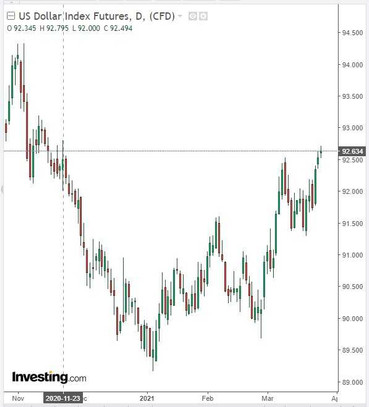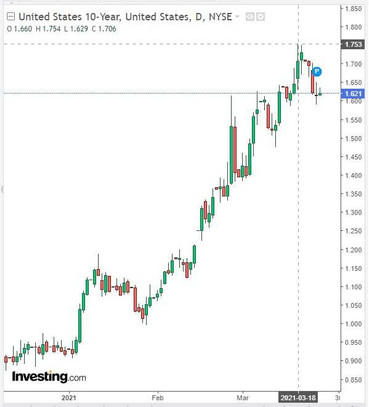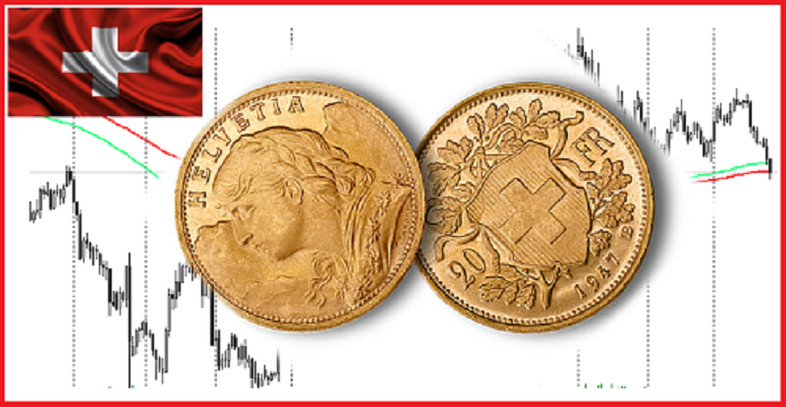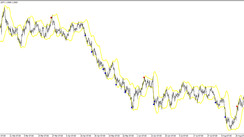During its regular meeting on Thursday, the Swiss National Bank decided to leave interest rates unchanged and continue to adhere to a stimulating monetary policy. The leaders of the NBS also confirmed their readiness to continue interventions in the foreign exchange market, traditionally considering the franc overbought. According to the bank's management, the negative interest rate and interventions in the foreign exchange markets are necessary in order to maintain the low attractiveness of investments in the Swiss franc, easing the pressure on the currency. Thus, the policy of the Swiss National Bank remains supportive. According to the bank, the “overbought” franc does not allow for a more active increase in the growth rates of the Swiss economy.
Financial market participants reacted rather restrainedly to this decision of the NBS, as it was expected. The NBS statement, which was similar to its previous December statement, stated, among other things, that “forecasts for the economy and inflation continue to be associated with a high level of uncertainty”, as so "the pandemic continues to have a severe adverse economic impact".
At the same time, the central bank raised its inflation forecasts in Switzerland due to higher oil prices and the weakening of the national currency. According to the bank's forecast, "economic activity should return to pre-crisis levels in the 2nd half of 2021", and GDP growth in 2021 will be 2.5% - 3.0%.
Franc quotes remained almost unchanged after the publication of the decision of the NBS. At the same time, the USD / CHF pair continues to trade with an increase, remaining in the zone above the key support levels 0.9170, 0.9322 (see Technical analysis and trading recommendations).
The USD / CHF is growing, primarily against the background of the strengthening of the US dollar, which rose to its highest level in 4 months against a basket of other currencies. Its strengthening is facilitated by the relatively fast pace of vaccination in the United States compared to other parts of the world, in particular, with the Eurozone, where a number of countries have suspended vaccination with the drug from AstraZeneca and introduced new quarantine restrictions, as well as statements by the chairman of the US Federal Reserve System Jerome Powell. On Wednesday, he reiterated that he is not worried about the increase in long-term bond yields, as this increase is associated with an optimistic assessment of the economic outlook.
Powell said in his congressional speech yesterday that the rise in profitability is an "orderly process" and does not require outside intervention. The Fed is likely to intervene in this "process" if it becomes unmanageable to stabilize it. In turn, Treasury Secretary Janet Yellen called on Congress to expand the Payroll Protection Program (PPP), under which banks provide loans to small and medium-sized businesses.
The media recently reported that the White House is preparing a new project of financial assistance to the economy in the amount of $ 3 trillion, moreover, by increasing the tax for large companies and for wealthy Americans. Most likely, this new aid package will strengthen the positive dynamics of US stock indices and put additional pressure on inflation towards its acceleration. One way or another, if inflation begins to accelerate at a faster pace, then the Fed will have to pay attention to this, resorting to curtailing its stimulating extra soft policy, and this will be a signal to close short positions in the dollar.

As of this writing, DXY Dollar Index futures are traded near 92.64 mark, in line with November 2020 levels. After the decline the day before, today the yield on 10-year US Treasury bonds is growing again and now stands at 1.621% against 1.754%, a local multi-month high reached last week.

The focus of investors today will be the publication (at 12:30 GMT) of the final estimate of the annual US GDP for the 4th quarter of 2020, as well as weekly data on applications for unemployment benefits.
The positive data on GDP will support the dollar and the American stock indices, although they are already mostly included in prices. The preliminary forecast for the 4th quarter of 2020 was +4.0% (+4.1% second estimate). GDP data is one of the key indicators (along with labor market and inflation data) for the Fed in terms of its monetary policy. Strong result strengthens the US dollar; weak GDP report negatively affects the US dollar.
If the data turns out to be worse than the preliminary estimate, then the dollar will be under pressure in the short term. In general, the positive dynamics of the dollar remains, including in the USD / CHF pair.
The Franc still receives support from buyers, who traditionally use it as a defensive asset in times of heightened financial market turbulence and political uncertainty in the world. However, in the current situation, the dollar seems to seize the initiative from both the franc and gold and the yen.





